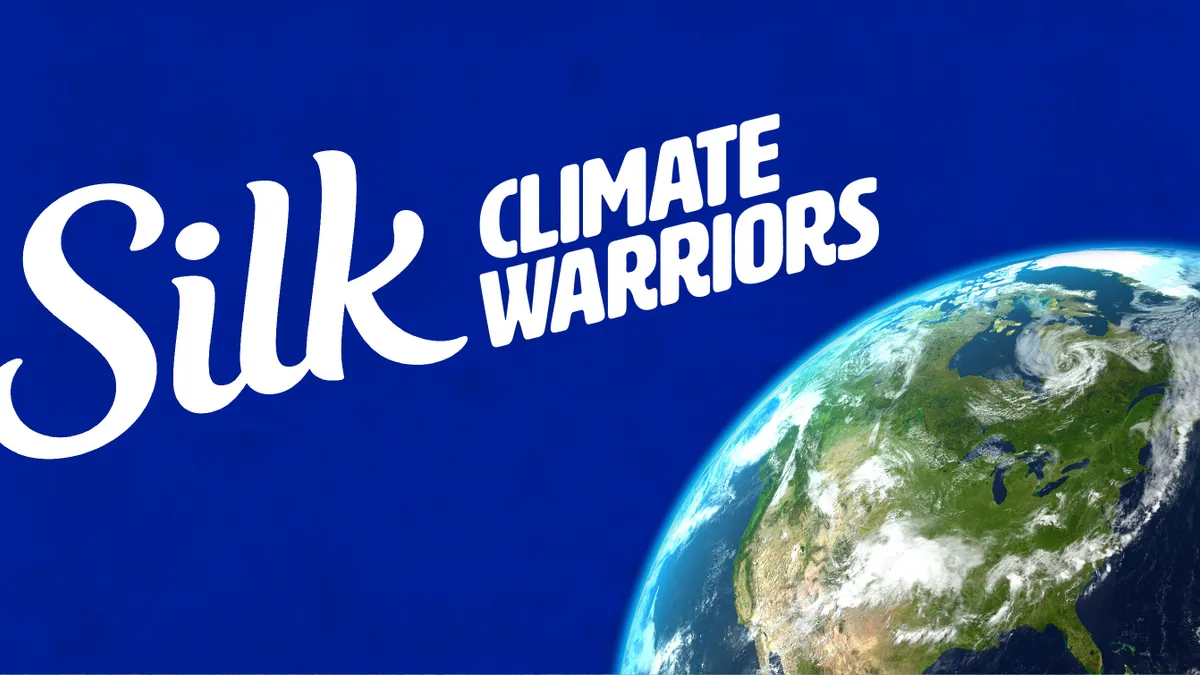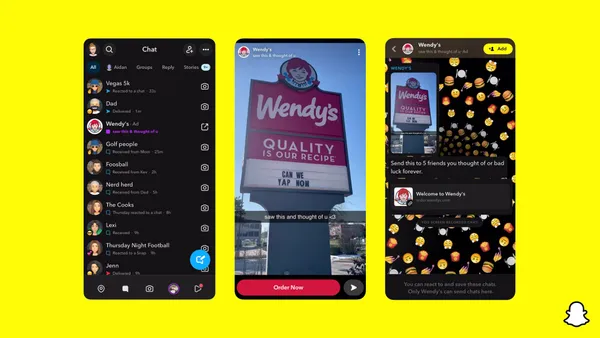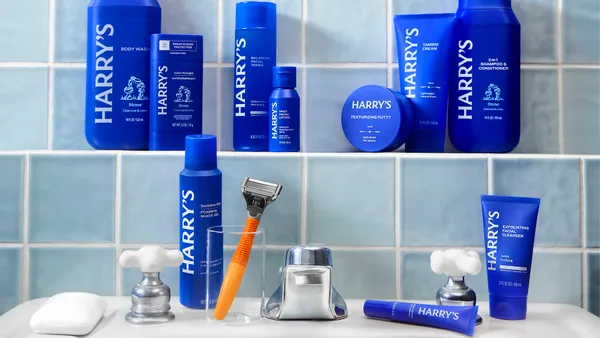Dive Brief:
- Plant-based drink brand Silk launched an Earth Day campaign aimed at helping people overcome their anxiety about climate change and to take action. The Danone-owned brand wants to turn "climate worriers" into "Silk Climate Warriors" by offering free virtual discussion sessions with a trained counselor, per an announcement.
- Visitors to the SilkClimateWarriors.com website can sign up for a 45-minute group eco-counseling session with Debbie C. Sturm, a licensed counselor and professor at James Madison University, on Earth Day (April 22). The sessions will urge participants to share experiences with climate change, provide advice on how to address eco-anxiety and learn how to take action.
- People who can't attend one of the sessions, which are provided on a first-come, first-serve basis, can find other information on Silk's website about coping with eco-anxiety and how to contact local, state and national lawmakers to urge them to do something about climate change.
Dive Insight:
Silk's campaign for Earth Day is consistent with the brand's longer-term advocacy for environmental causes. Its planned eco-counseling sessions are rooted in a study by the American Psychiatric Association that found 67% of U.S. consumers are somewhat or extremely anxious about climate change, and 55% worry about its effects on their mental health. Silk aims to turn that anxiety into action with its Climate Warriors campaign that offers tips on taking action.
Silk's messaging about climate change is likely to resonate with younger consumers, with 83% of people ages 18 to 34 saying it's important that the companies from which they buy products align with their values, compared with only 60% of people 55 and older, according to a study by 5WPR. Its survey also found 62% of that younger cohort said it likes buying products that show off their social beliefs or political ideology, compared with only 21% of older consumers.
Earth Day has been an occasion for Silk to participate in a variety of promotional efforts that tout sustainability, such as "Every Cart Counts" promotions that urge people to fill their shopping carts with plant-based foods. Last year brought more of a focus on the pandemic, which led to lockdowns, job losses and long lines at food banks. In response, Silk donated 1.5 million meals to the nonprofit Feeding America. Two years ago, the brand launched a campaign to establish "plogging" — a combination of jogging and picking up litter — as an event at the 2028 Los Angeles Olympic Games.
As a brand of plant-based foods, Silk touts itself as a healthier alternative to dairy products. That message not only covers eating habits, but also the effects of dairy production on the environment. Making Silk's beverages produces two-thirds less greenhouse gas (GHG) emissions than U.S. conventional dairy milk, according to the brand, which plans to cut its output of emissions by 7.6 a year for the next decade.
Plant-based foods are a high-growth product category with sales that jumped 27% to $7 billion in the U.S. last year, according to the Plant-Based Foods Association. Plant-based milk was the biggest category with $2.5 billion in sales, up 20% from a year earlier, followed by meat substitutes at $1.4 billion, frozen meals at $520 million and ice cream at $435 million.














